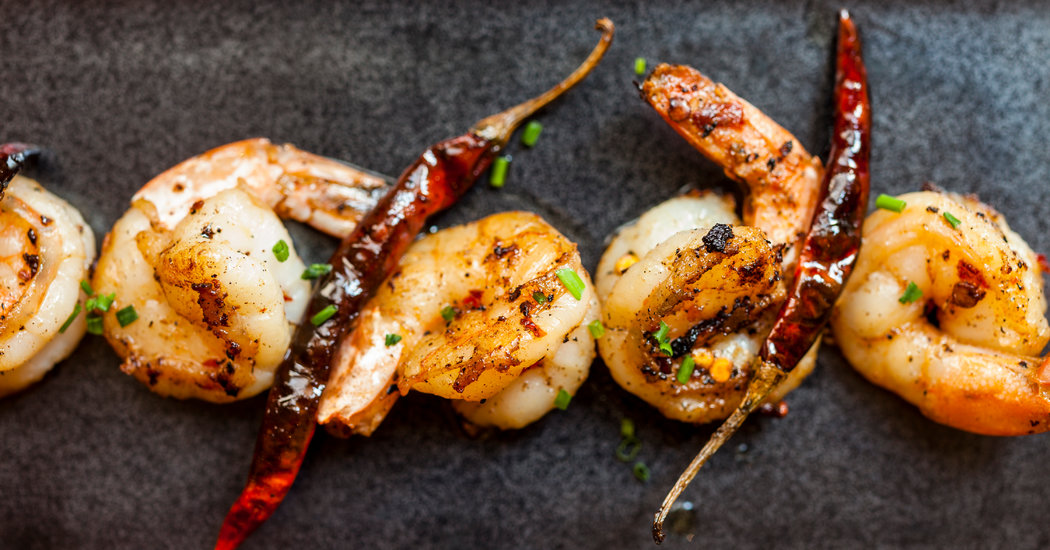
When she moved from India to England in 1991, Asma Khan studied British constitutional law — but she could barely boil an egg. “I struggled a lot because I didn’t know how to cook,” she said. “England was a foreign land. Nothing was in my control. But I realized I could infuse my house with the aromas of home.” For two summers she returned to India to learn the recipes of her mother and grandmother. And with her new skill, came a vision: “Every time I slept at night, I dreamed I was feeding people,” she said.
Last June, Ms. Khan’s dream became a reality when she opened Darjeeling Express, a bright and cheerful restaurant on Carnaby Street in London’s Soho district. Hanging plants, pendant lamps and blue and white walls create a welcoming atmosphere. The restaurant’s name harkens to Ms. Khan’s best childhood memories, a homage to the train she once took to her family’s summer home. Its menu honors her experiences as an immigrant and daughter, influenced by her family’s Mughali and Nawabi recipes, the flavors of Kolkata (where she was born and raised), and local produce.
Humble British vegetables shine in dishes like the beetroot chop, a croquette of mashed beets that balances spice and earthy sweetness. Beets also lend their rich color and flavor to raita, staining the cooling yogurt sauce bright pink. A pile of tender baby eggplants hummed with the striking flavors of peanut and coconut.
Kolkata’s street food inspired a first course of puchkas, delicate wheat and semolina shells stuffed with a mixture of spiced potatoes and chickpeas that require a two-step eating process: pour a dash of tamarind water into the shell, and then pop the whole thing in your mouth for an explosive bite of crunch, tang, and spice. Tangra chili-garlic prawns blended heat, browned garlic, and the sassy succulence of perfectly cooked shellfish.
Main courses included braised chicken thighs lavished with tomatoes and fresh dill, and a fork-tender goat curry smoldering with tempered chili. Bengali aloo dum — spicy potatoes, at once floury and fiery — are scooped up with puri, the puffed, fried flatbread typical to Indian home cooking. “These are the common foods of Kolkata that everyone eats,” Ms. Khan said. For dessert, there are equally homey offerings like stewed apricots drizzled with thick cream, or bhapa doi, a creamy steamed yogurt pudding not typically seen on London menus.
While Ms. Khan’s food has garnered praise — Netflix just announced she will be the first British chef profiled on season six of “Chef’s Table” — she was quick to credit the restaurant’s success to her all-female kitchen team, which is composed of former nannies, home cooks and other women who had never before cooked in a professional kitchen. “Most of them have had another life, other jobs,” she said. “This is our second innings.”
Indeed, Ms. Khan’s sense of community extends beyond her staff. She regularly hosts events for refugee groups and other charity organizations, and a percentage of the restaurant’s profits go to the Second Daughters Fund, a nonprofit organization that celebrates girls in India, where sons are often still preferred. “I want everyone to leave from here feeling nourished, replenished, healed,” Ms. Khan said. “I want them to feel they came home.”
Darjeeling Express, top floor Kingly Court, Carnaby Street; www.darjeeling-express.com. An average meal for two, without drinks or tip, is about 60 pounds (GBP), or roughly $80 at current exchange rates.




